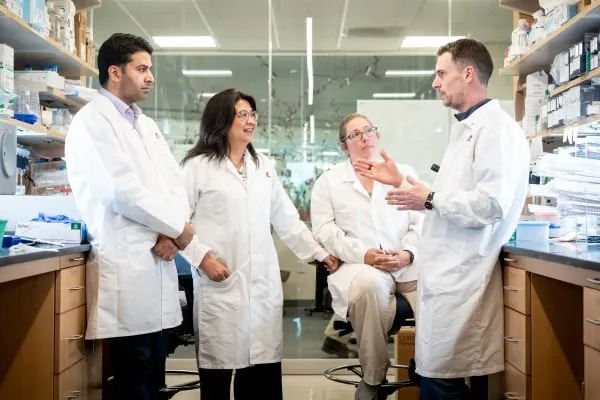
Breakthrough in Pediatric Brain Cancer: Unlocking a Targetable Mechanism for Medulloblastoma Treatment
2025-05-15
Author: Jia
In a groundbreaking revelation from St. Jude Children’s Research Hospital, scientists have unveiled a potential targeted treatment for a deadly form of pediatric brain cancer known as SHH-medulloblastoma. This discovery could change the lives of children born with a genetic predisposition linked to the ELP1 gene.
Research indicates that children with a deficient ELP1 gene are more susceptible to developing this aggressive brain tumor. By delving into the molecular mechanics, the team identified how ELP1 deficiency hinders the tumor suppressor protein p53, enabling cancer cells to flourish.
The Path from Gene Discovery to Targeted Therapy
"We first identified ELP1 deficiency as a risk factor for SHH-medulloblastoma seven years ago, and now we have translated that finding into a potential therapeutic strategy," said Dr. Paul Northcott, a leading researcher at St. Jude. The transition from a simple gene listing to a targeted approach marks an incredible leap in pediatric oncological research.
Although ELP1 is expressed in nearly all cells, its nonfunctional variant uniquely predisposes children to this specific brain cancer subtype. Experiments using mouse models lacking functional ELP1 helped to clarify its role in tumor formation.
Restoring Hope: Reactivating the Anticancer Protein
The research revealed that a loss of ELP1 decreases p53 activity—a crucial protein that acts as a guard against tumors. In human cancers, mutations in p53 are notoriously common, allowing tumors to grow uncontrollably. In children, this p53 deficiency is often linked to specific brain cancers originating from a certain type of cell in the cerebellum, which leads to SHH-medulloblastoma.
To counter this, the team explored MDM2 inhibitors. MDM2 typically suppresses p53, prompting its degradation. When researchers inhibited MDM2, they were able to restore p53 activity, resulting in the death of cancerous cells and significantly extending survival in mouse models.
A New Dawn for Clinical Trials
This innovative targeted therapy is set to enter clinical trials, offering renewed hope for affected children. With existing MDM2 inhibitors already in clinical tests, this discovery represents a pivotal moment in the quest for safer, more effective treatments.
Dr. Northcott emphasized the importance of basic research in developing innovative strategies to tackle childhood cancers, aiming to move away from traditional treatments that may come with severe long-term side effects. The new findings highlight the potential for enhanced and safer therapies specifically tailored for pediatric brain tumors.





 Brasil (PT)
Brasil (PT)
 Canada (EN)
Canada (EN)
 Chile (ES)
Chile (ES)
 Česko (CS)
Česko (CS)
 대한민국 (KO)
대한민국 (KO)
 España (ES)
España (ES)
 France (FR)
France (FR)
 Hong Kong (EN)
Hong Kong (EN)
 Italia (IT)
Italia (IT)
 日本 (JA)
日本 (JA)
 Magyarország (HU)
Magyarország (HU)
 Norge (NO)
Norge (NO)
 Polska (PL)
Polska (PL)
 Schweiz (DE)
Schweiz (DE)
 Singapore (EN)
Singapore (EN)
 Sverige (SV)
Sverige (SV)
 Suomi (FI)
Suomi (FI)
 Türkiye (TR)
Türkiye (TR)
 الإمارات العربية المتحدة (AR)
الإمارات العربية المتحدة (AR)